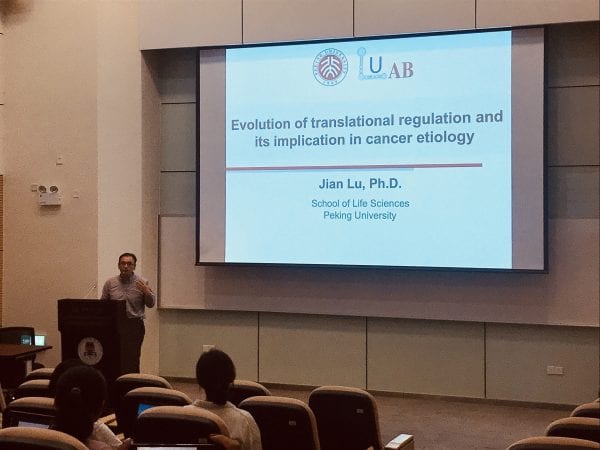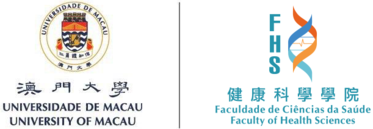
| Talk title | Evolution of Translational Regulation and its Implication in Cancer Etiology |
| Speaker | Prof. Jian Lu Principal Investigator School of Life Sciences, Peking University |
| Date & Time | 06 Nov 2019 (Wed) 10:00-11:00 |
| Venue | Room G002, N22 Building (University of Macau) |
| Abstract | The main interest of Prof. LU’s group is to identify the regulatory elements/factors that participate in eukaryotic mRNA translational regulation, to dissect the evolutionary driving forces on such elements/factors and to explore its contribution to cancer etiology.
Eukaryotic mRNA translation is a fundamental stage of gene expression and is highly regulated to control cellular protein homeostasis. Dysregulation of mRNA translation often causes human diseases. In the past few years, we have made significant discoveries on the function and evolution of cis-regulatory elements and trans-regulatory factors in mRNA translation from different aspects. By taking a genomic and evolutionary approach, the evolutionary principles behind each mechanism are emphasized. The work showed range and flexibility with a project addressing the human genome and cancer. Prof. LU’s work encompasses three mechanisms of translational regulation at the RNA level: 1) inhibition by upstream open reading frames (PLOS Biology 2018, TIBS 2019, Methods 2019), 2) A-to-I RNA editing causing ribosome stalling (PLOS Genetics 2017, Mol. Biol. Evol. 2018), and 3) inhibition by small RNAs including microRNAs (Mol. Biol. Evol. 2016, RNA 2018) and tRNA-derived small RNAs (Nucleic Acids Research 2018). Prof. LU’s research also allowed them to gain unique insights into the role translational regulation plays in cancer cell evolution. The biosynthetic cost of amino acid varies wildly. They demonstrated that the biosynthetic cost of amino acid affects global mRNA translation and the fitness of a cell (Nature Communications 2018). They quantitatively characterize the use of 20 AAs during protein synthesis in human cells with the ECPAcell (Energy Cost Per Amino Acid) metric and found that cancer cells evolve to utilize amino acids more economically by optimizing the global mRNA expression profiles in multiple cancer types. Their results indicate that tumors with lower ECPAcell tend to be more aggressive, and patients with such tumors have shorter survival times across a broad range of cancer types. These results also highlight the feasibility of ECPAcell as a potential prognostic marker for patient stratification. Conceptually, our study is fundamentally novel to the field and represents a substantive departure from the status quo, namely, gene-based analyses. their study emphasizes the importance of holism in understanding cancer evolution and improving cancer medicine. |

